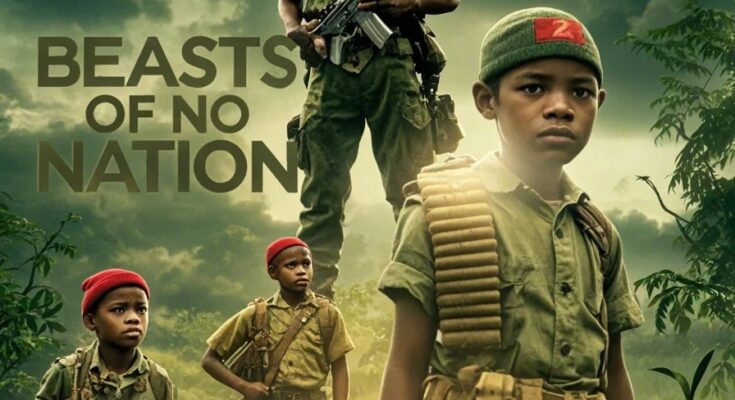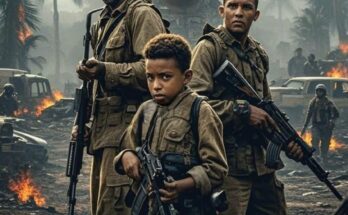The Commandant recruits Agu into his militia, transforming him from an innocent child into a child soldier. Under the Commandant’s manipulative influence, Agu is subjected to brutal indoctrination and forced to commit unspeakable acts of violence. The movie captures his internal struggle as he fights to hold onto his humanity while being immersed in a world of relentless brutality. Agu’s relationship with the Commandant is central to the story, reflecting the power dynamics and psychological toll of such exploitation.

As the rebel group’s fortunes wane and the Commandant loses his grip on power, the group begins to fracture. In one of the most emotionally charged scenes—the surrender scene—Agu and the remaining children are taken into custody by UN peacekeeping forces. The moment is both a relief and a reckoning for Agu. After years of dehumanizing violence, surrender represents the first step toward liberation, but it also forces Agu to confront the weight of his actions and trauma.

The film’s power lies in its unflinching portrayal of the horrors of war and the loss of innocence. It does not shy away from the psychological and emotional scars left on children like Agu, offering a raw, unvarnished look at the human cost of conflict. Abraham Attah’s extraordinary performance brings Agu’s pain, confusion, and resilience to life, while Idris Elba delivers a chilling portrayal of the Commandant’s manipulative charisma.
Beasts of No Nation is a poignant and unforgettable narrative, a searing indictment of the exploitation of child soldiers, and a testament to the resilience of the human spirit in the face of unimaginable suffering.



